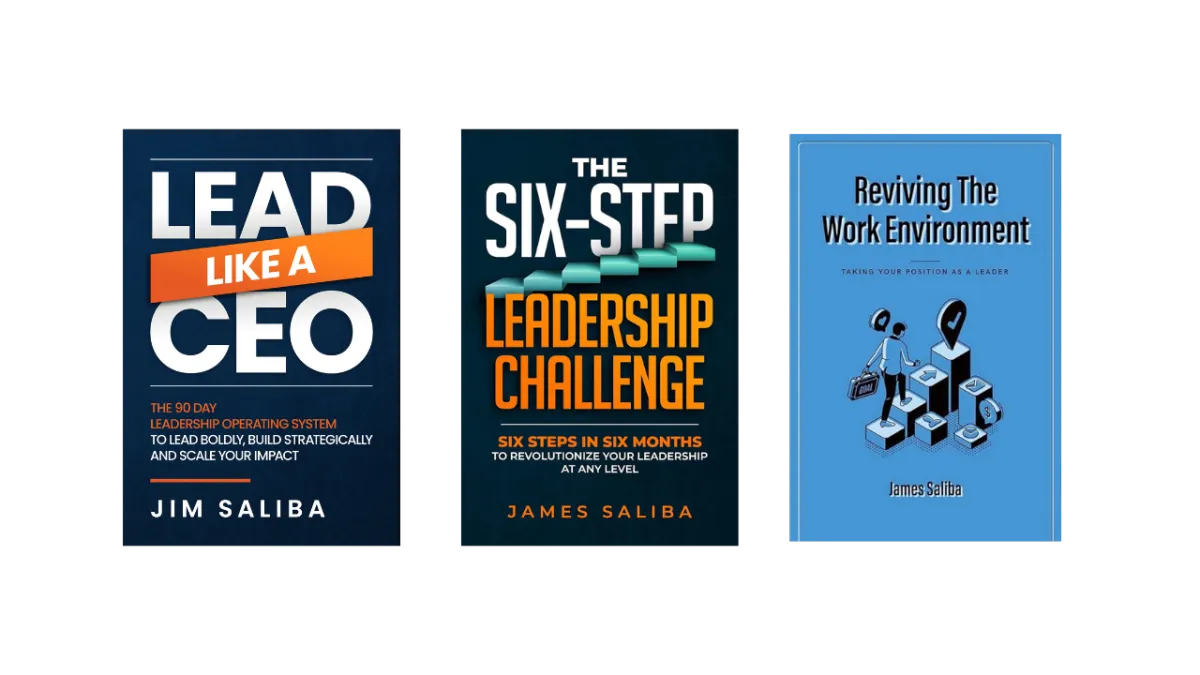Insights for Real-World Leadership
Straight talk and proven strategies for leaders who are done babysitting and ready to lead at the next level.

Stop Babysitting, Start Leading
Let’s just get this out of the way: micromanagement is babysitting. And unless you’re running a daycare, that’s not what you signed up for as a leader. If you’re constantly checking in, hovering over people’s shoulders, or—let’s be real—doing the work for them because you “can’t trust anyone to get it right,” you’ve got a problem. Spoiler alert: It’s not your team. It’s the culture you’ve built (or haven’t built).
Here’s the truth: high-performing teams don’t need babysitters. They don’t need someone breathing down their necks every 10 minutes. Why? Because accountability is baked into their culture. When everyone knows their role, trusts each other, and actually gives a damn about the mission, you don’t need to micromanage.
So how do you get there? How do you build a culture of accountability that frees you from playing hall monitor? Let’s dive in.
1. Accountability vs. Micromanagement: Know the Difference
First off, let’s clear something up: accountability is NOT micromanagement. If you’re checking in on every detail, tracking every little task, and asking for updates 20 times a day, that’s not accountability—that’s a control issue (yeah, I said it). And it’s killing your team’s morale.
Micromanagement happens when you don’t trust your people to do their jobs. It’s when you feel like you have to control every part of the process because—let’s face it—you think you’ll do it better. But here’s a fun fact: micromanagement sucks the life out of your team and kills any chance of innovation or ownership.
Accountability, on the other hand, is empowering. When your team owns their roles, understands what’s expected of them, and holds themselves accountable, you don’t have to babysit. You can focus on leading, not managing every tiny detail. It’s a trust-driven relationship where people take responsibility because they want to—not because they’re afraid of getting called out.
2. How to Instill Accountability at Every Level (Without Nagging)
Okay, so how do you go from micromanaging babysitter to empowering leader? It starts with culture. Here’s how you can instill accountability at every level of your team:
1. Clarity is king.
Let’s be real: If people don’t know what’s expected of them, how are they supposed to be accountable? You’ve got to be crystal clear about roles, responsibilities, and goals. No vague job descriptions or “just figure it out” vibes. Give your team clear targets and make sure they understand why their work matters.
2. Build trust, not fear.
If your team only works because they’re afraid of you, congratulations—you’ve created a toxic work environment. Accountability thrives in a culture of trust, where people know they have the space to do their jobs without you breathing down their necks. Stop micromanaging and start trusting your team. It’s amazing what people can do when they’re not afraid of you.
3. Encourage peer accountability.
Here’s the magic sauce: accountability doesn’t just have to come from you. If you’ve built a strong team, they’ll hold each other accountable. Why? Because they care about the success of the team, not just their own jobs. Encourage collaboration and create a culture where people feel responsible not just for their own work, but for helping each other succeed. This is where peer accountability really takes off.
4. Recognize ownership, not just results.
Results matter, sure. But don’t just celebrate when someone hits a target—celebrate when they take ownership of the process. Rewarding accountability at every level makes it clear that owning your work isn’t just an expectation, it’s the standard. People will rise to it if you make it part of your culture.
3. The Power of EQ and Culture Alignment in Driving Accountability
Accountability doesn’t just magically appear because you tell your team to “own their work.” It’s built on the alignment of two key forces: Emotional Intelligence (EQ) and Culture. When these two are in sync, they create an environment where self-accountability thrives without you having to chase after it.
Let’s break this down.
EQ Sets the Tone; Culture Sets the Stage
Your Emotional Intelligence as a leader sets the emotional tone for your team. How you handle stress, conflict, and feedback creates the emotional climate everyone else operates in. If you’re erratic, reactive, or constantly putting out fires, guess what? Your team’s going to mirror that chaos. But if you’re calm, empathetic, and proactive, your team follows suit. This is where EQ comes into play: it’s about how you interact with your team.
But it doesn’t stop there. EQ alone won’t get the job done. You also need the right culture—one that fosters trust, ownership, and psychological safety. When you build a culture that rewards accountability, collaboration, and transparency, it gives your team the confidence to take risks, admit mistakes, and stay committed to their responsibilities. Without a strong, healthy culture, even the most emotionally intelligent leaders will struggle to create real accountability.
How EQ and Culture Work Together
Think of it this way: EQ is the emotional engine, and culture is the road it drives on. When both are aligned, you get smooth, effortless performance. Here’s what that looks like in practice:
Leaders with high EQ know how to give feedback without crushing morale. They create a space where people feel comfortable owning up to mistakes because they know they’ll be supported, not blamed.
A strong culture reinforces this by encouraging transparency and learning from failures instead of punishing them. When your team knows the culture supports growth, they’ll take ownership of their work without fear of being thrown under the bus.
Together, EQ and culture create an environment where self-accountability is the norm. Your team doesn’t just deliver because you’re checking in on them—they deliver because they’re emotionally connected to their work, their teammates, and the bigger mission.
The Bottom Line: You Need Both
Here’s the thing: you can’t rely on just EQ or just culture. If you’re emotionally intelligent but your culture sucks, no amount of empathy will fix it. And if you’ve got a great culture but no emotional intelligence? Well, you’ll end up with a rigid, mechanical team that lacks the human touch.
For real accountability to thrive, EQ and culture need to work together. One without the other is like trying to drive a car without wheels—you won’t get far.
Leaders Who’ve Made the Shift
Michael R., Senior VP

“Jim did more in two sessions than my last coach did in six months.”
(Translation: Jim doesn’t waste your time.)
Karen H., Senior VP

“Jim made it easy to focus on the real leadership challenges.”
(Translation: No fluffy theories. Just real talk and results.)
Ashly N., Director

“Within 15 minutes, I knew I’d made the right decision.”
(Translation: You’ll know fast if Jim’s your coach.)
Stop Acting Like the Chief Fire Extinguisher.
Start Leading.
You know the endless approvals, babysitting, and check-ins aren't real leadership. Let's fix that.
© 2025 James Saliba Inc. • All Rights Reserved • Helping Tech Leaders Lead Strategically Without Firefighting • Terms & Conditions


